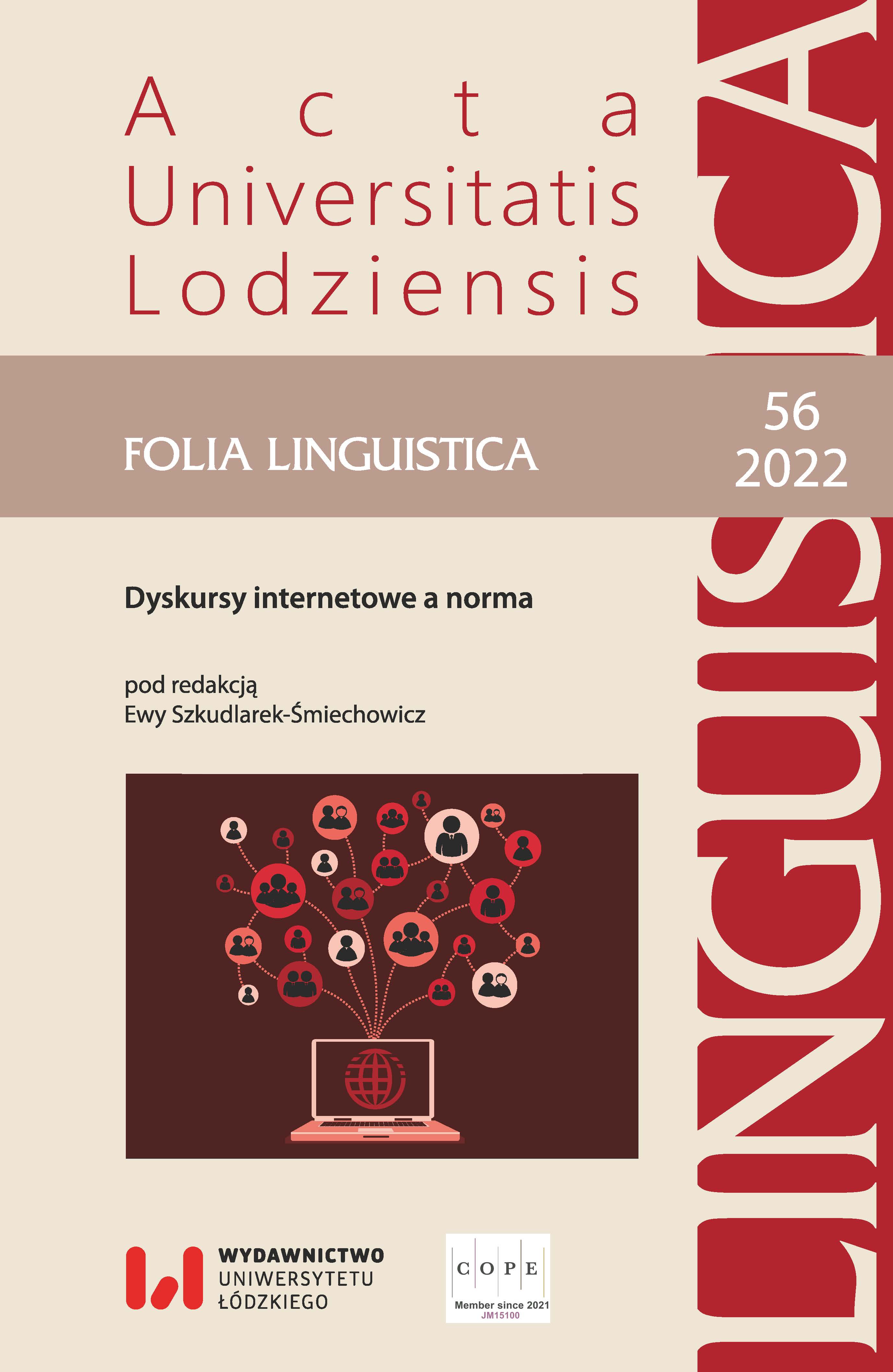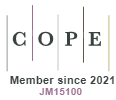So-called ‘memobłędy’ as a form of linguistic expression on the Internet
DOI:
https://doi.org/10.18778/0208-6077.56.10Keywords:
linguistic mistakes, Internet discourse, meme, memobłąd, linguistic normAbstract
This paper examines intentional mistakes (called memobłędy, which is a Polish word coined from a combination of words ‘meme’ and ‘mistake’) as functional deviations from the linguistic norm on its different levels, regarding spelling, ortophony, inflexion, syntax and word-formation. Internet users create such expressions not only to criticize public figures or social groups in a scathing way but also to express feelings which are hard to describe in an indirect communication (e.g. harmless jealousy – zazdraszczam). The intentional mistakes may be considered as a distinct type of memes, which are units of cultural transmission (due to Dawkins’s theory), because they are viral, dialogical and hyperbolizing. Some of them go beyond the realm of memes and become a part of the colloquial spoken language (e.g. madka, ten uczuć, odzobaczyć) but they do not affect its correctness in any significant manner.
Downloads
References
Cambridge Dictionary, https://dictionary.cambridge.org/ (dostęp: 10.10.2021).
Google Scholar
Dawkins R., 2012, Samolubny gen, przeł. M. Skoneczny, Warszawa: Prószyński i S-ka.
Google Scholar
Kamińska M., 2017, Memosfera. Wprowadzenie do cyberkulturoznawstwa, Poznań: Galeria Miejska Arsenał.
Google Scholar
Kita M., 2014, Medialna kariera błędu językowego, w: M. Kita, I. Loewe (red.), Język w mediach. Antologia, Katowice: Wydawnictwo Uniwersytetu Śląskiego.
Google Scholar
Kłosińska K., 2017, Istnienie i kształt normy językowej po przełomie cyfrowym, „Biuletyn Polskiego Towarzystwa Językoznawczego” 73, s. 81–90.
Google Scholar
Levinson P., 2010, Nowe nowe media, przeł. M. Zawadzka, Kraków: Wydawnictwo WAM.
Google Scholar
Markowski A., 2012, Kultura języka polskiego. Teoria. Zagadnienia leksykalne, Warszawa: Wydawnictwo Naukowe PWN.
Google Scholar
Niekrewicz A., 2016, Funkcjonalne naruszenia normy ortograficznej w memach internetowych, „Poznańskie Spotkania Językoznawcze” 32, s. 93–103. https://doi.org/10.14746/psj.2016.32.7
Google Scholar
DOI: https://doi.org/10.14746/psj.2016.32.7
OJ UW — Obserwatorium Językowe Uniwersytetu Warszawskiego, https://nowewyrazy.uw.edu.pl/ (dostęp: 11.10.2021).
Google Scholar
Popiołek M., 2018, Czy można żyć bez Facebooka? Rola serwisów społecznościowych w sieciowym społeczeństwie informacyjnym, Kraków: Wydawnictwo Uniwersytetu Jagiellońskiego.
Google Scholar
Solon O., 2013, Richard Dawkins on the internet’s hijacking of the word ‘meme’, https://www.wired.co.uk/article/richard-dawkins-memes (dostęp: 8.12.2020).
Google Scholar
Wikisłownik, https://pl.wiktionary.org/wiki/odzobaczy%C4%87 (dostęp: 1.10.2021).
Google Scholar
Downloads
Published
How to Cite
Issue
Section
License

This work is licensed under a Creative Commons Attribution-NonCommercial-NoDerivatives 4.0 International License.










